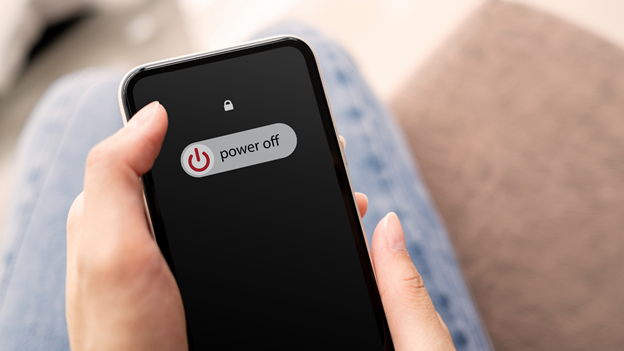How To Get Over Your Candy Crush Addiction

Content
What Makes Candy Crush So Addictive?

We do not like to vilify developers of video games as their job is inherently a conflict of interest between the user and the addict. However, the intentions of games such as Candy Crush can be questionable, to say the least.
Let’s get into what makes Candy Crush Saga so addictive.
Sense Of Achievement
This game is particularly good at luring people in with puzzles that are so irresistibly easy to solve that you can’t help but tap on the screen. The game does however do a good job of rewarding the playing with satisfying animations, audio cues and extra lives for completing levels quickly. When players complete the initial easy levels and think they’re on a roll the difficulty slowly starts to increase and require more thought. Before you know it, hours are passing like minutes and money is being parted with to buy lives and beat the later levels.
Candy Crush plays on our desire to see measurable growth. As humans, we innately feel good when we achieve things and it conditions us to work more towards this goal. Hence Candy Crush provides us with challenges that are just difficult enough to get us thinking but easy enough to keep us wanting more.
Falling into the trap of addiction to this game has negative impacts on our motivation to carry out other tasks in our life which we will explain in more detail later.
Escapism
When we get fixated on clearing the coloured candies to complete the levels, we enter a deep state of focus that causes us to become oblivious to almost everything around us. As a result, this level of immersion helps people to forget about negative situations and emotions in life that cause them a lot of stress. Video games have been shown to reduce the effects of negative emotions like fear, anger and sadness hence they provide the perfect tool for escapism.
Having a vice so easily accessible to run from uncomfortable situations leads to many people developing an addiction to Candy Crush Saga. Those who are most likely to suffer from addiction to puzzle games tend to be women. Studies have shown that reward-based motivation when it comes to puzzle games, is more powerful in women compared to men. This suggests that women have more of a genetic predisposition to be addicted to Candy Crush.
So much so that a woman had become so addicted to the game she would neglect everything to play for 18 hours a day. Ultimately she lost her job, thousands of pounds and pushed her family away in the process.
This isn’t to say that men can’t be addicted to Candy Crush, so everyone who plays mobile games should be vigilant to the symptoms of video game addiction.
Low Barrier For Entry
What this means is the game is super easy to access and start playing. Typically, this is something that Candy Crush Saga shares with most mobile games as we keep our smartphones with us everywhere. The intuitive and simplistic nature of the puzzles, just lining up three or more of the same coloured candies in a batch of other randomly assorted colours, makes it so that anyone can play. There’s no off-putting, steep learning curve and confusing controls to master. Hence so many people have fallen into an addiction to this game.
How To Tell If I Am Addicted?

Many people at risk of developing an addiction to Candy Crush aren’t too sure of what to look out for when diagnosing it. So, we decided to show and explain some of the major symptoms of video game addiction to make you more vigilant.
Obsessive Thinking About Candy Crush
It’s okay and perfectly natural to be excited and want to play a video game that you like. However, if during the day you find yourself losing concentration at work/school and fantasizing about playing then this could be a red flag. If the game is consuming your thoughts, having you tune out of the conversation or other important events then it’s safe to say we’ve moved towards an obsession.
Damage To Personal Relationships
A common symptom of gaming addiction is neglecting close friends, family and responsibilities to colleagues. Gaming becomes the number one priority in the lives of someone who is addicted to video games. Hence someone suffering from an addiction to Candy Crush will ignore partners, responsibilities and important dates due to how immersed and committed they are to getting their fix of playing. The idea of going out and socialising with friends becomes unappealing as they would rather stay in and complete more levels. If you find that you are pushing away those close to you because of your gaming habits then it might be time to seek help
Feeling Irritable and Agitated When Not Playing
When someone is addicted to video games they are addicted to the hits of dopamine they get for playing and succeeding. So it’s common for players to be very irritable and temperamental when they have been deprived of their dopamine hit. Dopamine is responsible for mood, motivation, working memory and many cognitive functions. Hence, it’s easy to see how someone can be in a bad mood when deprived of dopamine.
One of the most obvious symptoms is, of course, playing for extended periods of time. Many people debate, how much is too much? When it comes to gaming. However, the focus should be on the quality of life as opposed to the number of hours played. Everyone is different and hence video games can affect them differently. Two individuals can both play for 5 hours each day. One living a perfectly balanced lifestyle while the other’s life could be falling apart.
The World Health Organisation (WHO) diagnosis explains that if video games significantly impact the function of important areas of life such as relationships, education or occupation for at least 12 months, we are dealing with video game addiction.
Other symptoms of video game addiction consist of:
- Neglecting important responsibilities to play Candy Crush
- Neglecting previously enjoyed hobbies
- Lying to others to conceal your gaming habits
- Depression and isolation
- Feeling anxious when not playing
- Insomnia and sleep problems
- Neck and back pain
- Repetitive strain injuries
- Decline in personal health and hygiene
If you happen to be experiencing these symptoms then it might be time to seek help or test for video game addiction.
Negative Effects of Candy Crush Addiction

Following on from the symptoms and addictive qualities we’ve just discussed we’d like to share some of the life-changing effects of video game addiction, should we let it go untreated.
Damaged Motivation
Most people who are addicted to video games struggle to muster up the motivation to achieve much else outside of video games. Particularly with games like Candy Crush that constantly reward you and have almost infinite levels. They provide a shortcut to instant gratification.
Most things in life that are worth having require hard work and don’t really show results until months or years into working towards them. To someone addicted to video games this energy and investment are almost impossible to attain as they are dependent on their fast frequent rewards from gaming.
Sadly, the human condition is built to need measurable growth and rewards for it. A gaming addict without video games can see life as hard work with no reward. Which can sometimes lead to feelings of depression. That’s why at The Mindful Gamer we provide CBT techniques and treatment to change the addict’s outlook on life without video games to stop them from falling into this trap
Loss of Interest In Other Hobbies
Even celebrities have been known to feel the effects of this one. Being addicted to games like Candy Crush can provide such stimulation and become so time-consuming that we begin to neglect other things that we previously used to enjoy. The problem is that gaming provides unique forms of stimulation all in one place. We can use it to achieve things, pass levels and get high scores. We can use it to relax and unwind after a long stressful day or even enter high levels of focus to complete levels to the best of our ability.
It’s difficult to find another activity outside of gaming that can provide entertainment like this when and how we want. Our solution to this is to find multiple different activities for each type of stimulation gaming provides. We explain this in great detail in our alternative activities to playing video games article.
Feelings of Anxiety
Candy Crush has been known to sap time and take priority over almost everything in a gamer’s life. This has been known to increase the feelings of anxiety that some addicts feel. As we mentioned earlier some gamers use video games to escape negative emotions. When we run from our emotions as opposed to learning to healthily deal with them it results in them being far more overwhelming when we are forced to experience them.
Feelings of fear, anxiety and sadness are all part of life and help our emotional growth. Gaming could be stunting this by providing a tool to run from our emotions. Furthermore, when someone neglects everything due to their addiction the weight of the world feels like it’s on their shoulders when they allow responsibilities to pile up. A lot of the time it causes addicts to bury their heads in the sand and play more video games in a vicious cycle. But other times, it leaves people feeling extremely anxious.
Candy Crush Addiction Treatments

Candy Crush Saga is without a doubt one of the most addictive mobile games on the app store so if you find yourself slipping away into an addiction here is how to overcome it.
Identifying Your Addiction
Alcoholics anonymous have a very cliche saying that “Admitting that there is a problem is the first step towards recovery” Funnily enough, this does reign true as many addicts are often in denial of their problem. Particularly with video game addiction, individuals feel a lot of embarrassment towards their problem. They feel as if it is something to be ashamed of and they should be able to just stop without anyone’s help.
While it is entirely possible to quit and cut down on video games by yourself. Video game addiction is a very real mental health problem and there is no shame in needing a little help in treating it.
The key to identifying video game addiction is, to be honest with yourself. Take a moment to reflect and answer these yes/no questions:
- Do you lie to your friends, family or colleagues about your gaming habits?
- Does playing Candy Crush Dictate how you feel for the day?
- Is playing Candy Crush your main motivation to get things done in the day?
- Are you finding entertainment outside of Candy Crush boring?
If you find that the answer to most of these is yes then it may well be time to cut down. As we have previously discussed it can be very difficult for addicted gamers to recognize their addiction while they are experiencing it. So ask a loved one about your gaming habits. Often those closest to the gaming addict will bring up their addiction before they, themselves have realised it. Take a moment to see if others have begun to notice the amount you are playing.
Once we know that the game is negatively impacting us we can work on cutting down.
Detox From Candy Crush
Taking a detox from Candy Crush essentially means removing the game and all related content that might cause you to play for an extended period of time. This timeframe is usually 90-days as this gives the best results in reducing addictive symptoms.
Detoxing is one of the most useful methods to help get over gaming addiction and is carried out by in-patient rehabilitation centres around the world. Cutting out the game you are most addicted to is going to be difficult and you will likely experience withdrawal symptoms. However, here are a few things we can do to make the detox a lot easier.
Increase the Barrier For Entry – We have to make the game harder for us to play in order to deter us from doing so. Some great ways to do this are:
- Lock or hide the app on your phone
- Keep your phone far away place when working or carrying out other important daily activities
- Lend your phone to a friend or family member when you feel like playing if you can’t stand by your self imposed limits
- Avoid online content related to Candy Crush. Things like youtube videos and tutorials.
- If you feel strong-willed and confident enough then by all means delete the app altogether
Removing certain stimuli that cause us to want to play the game makes the process easier, out of sight out of mind. When we make Candy Crush harder to access by hiding our phones or deleting the app it creates an opportunity to think rationally rather than just loading the game up on impulse.
Dealing With Withdrawal Symptoms
Withdrawal symptoms are all part of the video game addiction recovery process and are the main reason for relapse. We recommend that all of our users practice the relevant ACT and Mindfulness exercises to lessen the impact of these withdrawal symptoms. So what is ACT?
ACT stands for Acceptance and Commitment Therapy, a form of therapy clinically proven to help people suffering from mental health conditions such as anxiety, depression and addictions. ACT works to help embrace negative thoughts and feelings rather than fighting against them. Whenever we fight against our negative thoughts or cravings we add an additional layer of suffering which can cause us to dread them. If we can learn to accept them for what they are we can inherently decrease the amount of suffering they cause.
ACT can be practised through meditations and thought experiments that help us to develop our psychological flexibility. Here is an excerpt from an ACT exercise to get you started.
(Beginning of Meditation)
Find a quiet room free from distractions.
Now, gently close your eyes or focus on a point in the room.
We are going to reflect on our withdrawal symptoms with this metaphor to help us understand how to overcome them.
I want you to imagine that your addictive thoughts and negative thoughts that lead to you playing video games are quicksand.
Quicksand as in a wet patch of sand that cannot support the weight of solid objects so causes them to sink.
When we experience the thoughts that cause us to play video games we are placed in this patch of quicksand. Our usual response is to follow our instincts and struggle free, placing weight on each foot as we attempt to march and thrash our way out of this pit.
With each fight or flight response, we pull ourselves in deeper and deeper until we are stuck. Or in this case, we relapse.
The solution to freeing yourself from quicksand is to spread your body out to cover a larger surface area and move slowly. By this logic, in the face of the frightening quicksand, rather than fighting to squirm free. We should lie down, and slowly pull ourselves to freedom.
The more you accept your present situation and embrace the vulnerability, the easier it is to escape.
So now we apply this to the pain and suffering that comes with our addiction and knowing when to seek help. The more we fight against our situation the more we drag ourselves down into the pit.
One thing to take home from this is that acceptance is not the same as admitting defeat and doing nothing. Acceptance is the acknowledgement of our problems, understanding how they make us feel and moving in the correct direction consistent with our values.
Gently open your eyes and bring your attention back to the room.
(End of Meditation)
Before we go we’d like to share one more exercise to help with overcoming your Candy Crush addiction. We talk a lot about mindfulness so it’s important to understand what it is and how to use it.
Mindfulness is the act of becoming aware of your mind, thoughts and sensations you are experiencing in the present moment, without judging them. Mindfulness is used to shift our attention into the present moment in order to take us away from the overwhelming sensations we might be experiencing.
Being able to focus our attention in the present moment is an essential skill for someone overcoming addiction. It has been shown to increase feelings of compassion for oneself and others, improve feelings of gratitude and outlook on life and overall decrease addictive symptoms.
One exercise that we guide our users through is the “Mindful Question Method”. This is a meditation in which we ask ourselves a series of questions to help improve our ability to be in the present moment.
So, let’s get started
(Beginning of Meditation)
Find a quiet room free from any distractions.
Whenever you begin to feel a negative thought or emotion, gently ask yourself “Could I just become aware of this situation?” Just to see if you can look at it as an experience without judgement. Not trying to change it or control it in any way. Just trying to become aware of it.
Ask yourself “Could I simply observe this experience?” The same way that a scientist looks at a specimen and objectively takes note of what they see. Gently try to observe what you’re feeling and be with the experience for a moment.
Now our next step is to ground ourselves. To shift our focus away from negative thoughts or emotions. Ask yourself “Could I become aware of my breath and body?” Try to become aware of the air moving in through our nose or the soft rise and fall of our abdomen with each breath. When your mind starts to wander, calmly bring it back to your breath.
Finally, let us try and open up to the experience as a whole. Ask yourself “Could I just open up to this experience?” Just allow yourself to make room for this experience. Even if you don’t like it or want it to be there. “Can I simply open up to this experience?” So that it can become more manageable.
Gently bring your attention back to the room.
(End of Meditation)
The importance of this meditation is that it will help to take power away from our addictive thoughts and make it easier to deal with negative thoughts now and in the future.
Be sure to practice mindfulness as it is a skill. The better we can get the easier it will be to overcome our withdrawal symptoms.
We hope that you found these exercises useful and they help you with your Candy Crush addiction.
If you feel like you have been playing too much and want to quit or cut down. Or, you want to find out more about video game addiction, The Mindful Gamer is always here to help.








